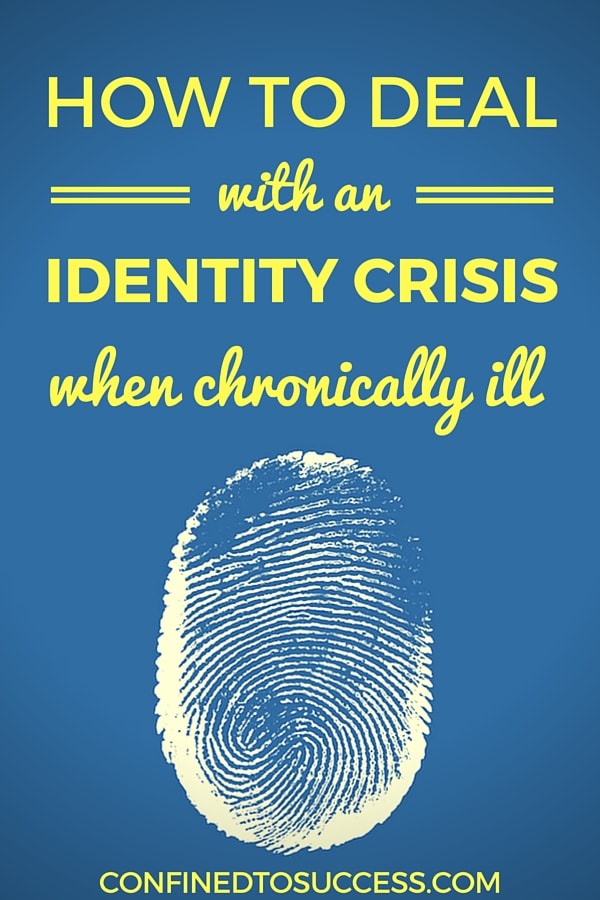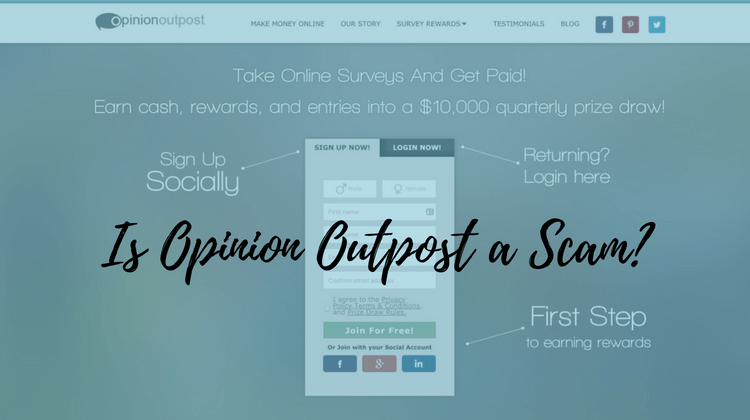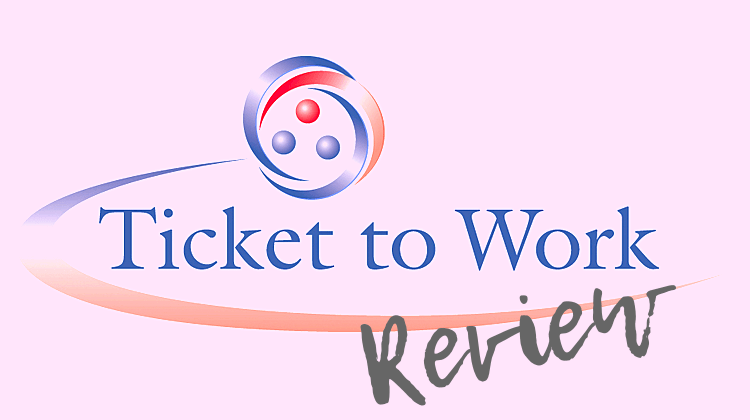How To Deal With An Identity Crisis When Chronically Ill

Having a chronic illness is never just contending with the illness itself. There’s the psychological impact, the fall out with family and friends, the financial worries, and one that doesn’t get talked about often…the loss of identity.
When I became sick with Chronic Lyme Disease, all the things that defined me were called into question…
The songwriter/arranger/producer…The international traveler…The Manhattan tech worker…And on and on…
All these facets of my life were suddenly stripped away and I was left with a shell of my former self.
Had I just become a man whose sole purpose in life was to fight Chronic Lyme Disease, an insidious illness which most doctors didn’t (and still don’t) even recognize? Is that ALL I had been reduced to?
I struggled for a long time trying to make sense of my place in the world and to be honest, I still do in many ways. But I’m also more comfortable in my skin than in years past.
In this post, I share how to deal with an identity crisis when you’re struck down by a chronic illness or disability. But before we get to that, let’s get a handle on what it means to have an identity crisis…
WHAT’S AN IDENTITY CRISIS?
When you think about who you are, what immediately springs to mind? Well, if you’re like most people, there’s no single answer since SO much makes up the person you are today…
Your roles…Your profession…Your beliefs…Your values…Your hobbies…Your religion…Your nationality…And more…
The way we define ourselves and where we stand in relation to society is what forms our identities. Throughout our lives, new identities replace old ones while others stay the same.
The problem is when this natural flow gets disrupted by some event, causing you to question who you are and your role in society.
In our case, it’s a chronic illness or disability which negatively impacts our lives in several ways…
- Forced to change or quit jobs
- Loss of financial status, thus dramatically altering our lifestyles
- Forced to become dependent on others
- Loss of support systems (friends, family members, partners, etc.)
- Inability to engage in activities once enjoyed
- Unpredictability of our health conditions
A change of this scale can cause a LOT of confusion and uncertainty because the identities we’re familiar with don’t match our new realities. And the stronger we identify with the parts of our former self, the more suffering we experience when we lose it.
So, what do we tend to do?
Well, we either try to recapture our old identity (often a lost cause) or search for a new one. But this search can turn into a hopeless exercise where trying new identities becomes as common as switching wardrobes. And living in a country like America where personal identity reigns supreme doesn’t help matters when you’re still shopping around.
The experience is actually strikingly similar to Zelig, the protagonist in the great Woody Allen film of the same name, where he takes on the characteristics of people surrounding him like a human chameleon (highly recommended if you haven’t seen it).
Aside from feeling perpetually groundless, living through an identity crisis is also mentally exhausting and disheartening, especially when you can’t let go of your former self.
But sometimes the symptoms of an identity crisis aren’t as obvious. So, here are more subtle behaviors to watch out for, which may or may not be related…
Questioning the Meaning of Life
A preoccupation with existential thoughts and reading books that wrestle with this topic like Viktor Frankl’s Man’s Search for Meaning and Jean-Paul Sartre’s Being and Nothingness may be a sign of identity crisis.
Radical Changes of Opinion
- Religious Beliefs – Becoming more religious or less so; converting to another religion.
- Political Beliefs – Dramatic shifts from left to right in the political spectrum or vice versa.
- Popular Culture – Sudden shifts in tastes in music, film, literature, and art.
Indulging in Escapism
- Engaging in self-destructive or reckless behavior such as excessive alcohol consumption, recreational drugs, and/or promiscuity.
- Spending many hours at a time playing video games, binge watching, listening to music, etc.
Okay, so now that you have a better idea of what an identity crisis is and feels like, let’s talk about how to deal with it…
HOW TO RESOLVE AN IDENTITY CRISIS
As human beings, we have a natural tendency to think of ourselves as “fixed” entities when in fact we’re constantly evolving. Our roles, jobs, possessions and other parts of our identity are always subject to change.
But these are just surface-level characteristics.
Beneath this layer is where we find our true identity, the one that stays with us until our dying day — our talents, knowledge, skills, personality, and ultimately our consciousness or “beingness.”
Now, that might not be the answer you’re looking for to help you in the “real world” but it’s worth knowing. As lost as you may feel, your core being is always available and accessible to you through deep contemplation and practices like meditation.
Eventually, you start to recognize identities for what most are — expectations dictated by society.[source] When you strip those away (which chronic illnesses and disabilities inevitably do), you’re left with your true self.It’s from this place where a new “outer” identity can take shape.
And how do you do that? Well, I’ve identified a few steps…
1. Be Aware of Influences
A person suffering an identity crisis is easily impressionable, such that family, friends, co-workers and others can have a great deal of influence over your life. But as much as you might identify with these people, their identities won’t necessarily align with yours. That’s why it’s important to spend some time by yourself as you work through this crisis.
2. Look for Patterns
One of the hallmarks of an identity crisis is experiencing an endless stream of conflicting thoughts and ideas. To get a better sense of where you really stand on something, you have to look for commonalities between dissociated patterns.
An excellent way to achieve this is through journaling, where you analyze your writing for possible connections which you then can represent visually using a Mind Mapping tool.
Aside from this technique, give thought to how you spend your time throughout the day. Are there things you do which you can’t do without? Then ask why you do what you do to see what’s behind your behavior.
Let’s take a hobby like scrapbooking for example. Sure, it’s a fun way to preserve memories but maybe there’s another reason you’re drawn to it which hadn’t crossed your mind — the joy of making something look orderly and inviting. That could be a core value onto itself — your deep appreciation for stylish presentation and organization!
3. Practice Visualization
Take the time to visualize the absolute best version of yourself and be as detailed as possible. The clearer the picture you have of yourself, the closer you are to identifying the “right” identity.
So, start by asking yourself who that person would be…
How do you look?What kind of environment do you live in?Who do you interact with?How do you interact with people?Where do you spend your time?What gives you the most happiness?
There are many guided visualization videos on YouTube and elsewhere to help you with this exercise, like this great one for example:
I recommend practicing daily over a period of at least two months to reap the benefits of visualization. As an alternative, you can create your OWN visualization of your ideal self by creating a vision board.
4. Get Outside Help
Sometimes overcoming an identity crisis isn’t possible without outside help. Both therapists and support groups can help you recognize things about yourself which you might not have arrived at alone and consequently steer you in the right direction.
THE PLUS SIDE TO IDENTITY CRISIS?
Before you put these tips into practice, I want to leave you with this…
Dealing with an identity crisis while chronically ill or disabled isn’t necessarily all bad. How so? Well, if you’re anything like me, you’ve developed positive traits like these!…
- More compassion toward others, especially those suffering from chronic illnesses or disabilities.
- Less materialistic and a greater appreciation for the simpler things in life.
- More patience and better listening skills.
Find out how YOU can create the ideal version of yourself!
NOW IT’S YOUR TURN!
How would you describe your identity crisis? Leave your comments below!









